
Nuts and Peanuts Allergies In Children
7 min readWritten by Dr Nihan Khan

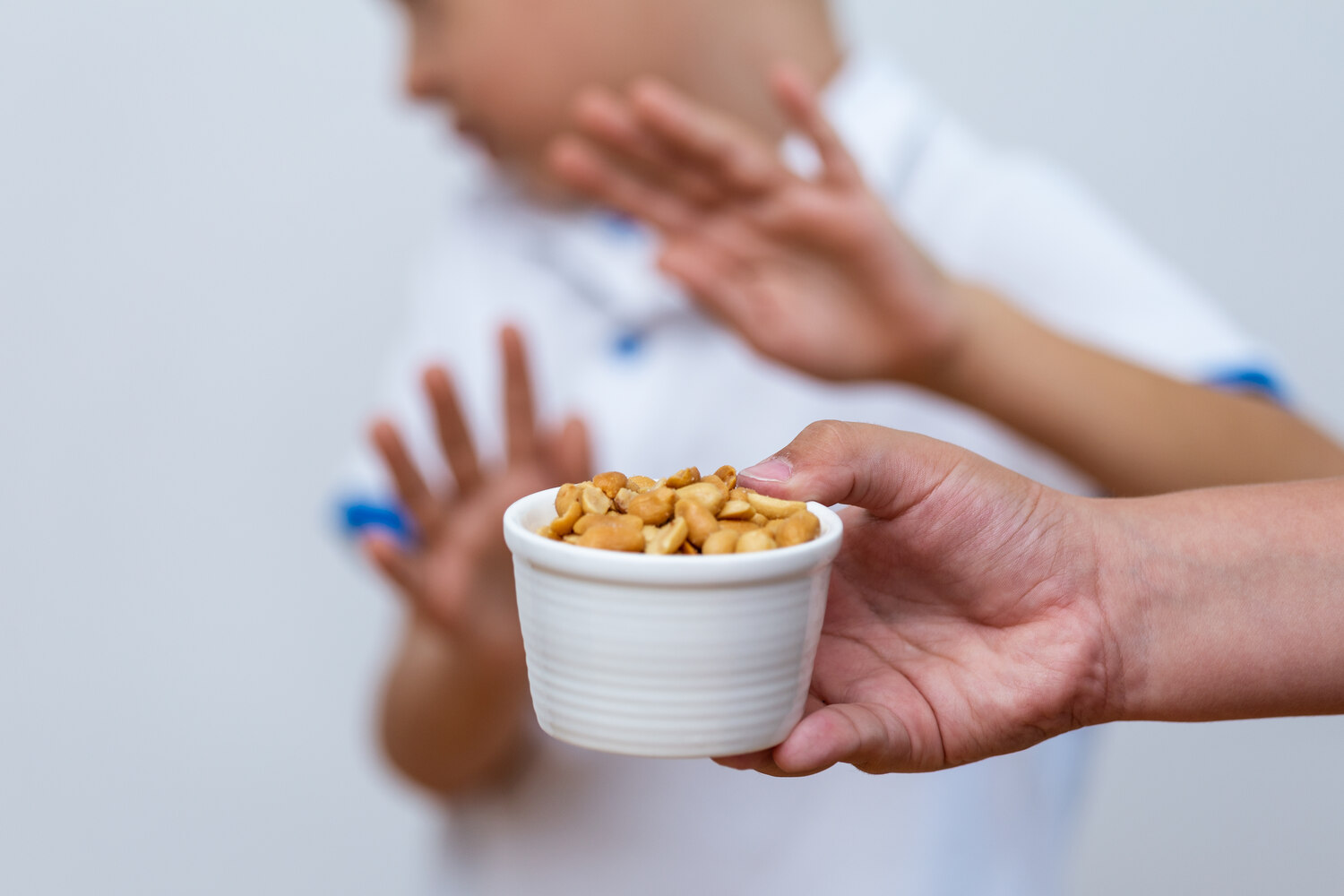 Allergic reactions can vary from person to person. While often mild, they can sometimes be very serious. In young children, nut allergies, including peanuts, are increasingly becoming more common. Knowing more about the causes and prevention of these allergies can be life-saving. An allergic reaction can begin in minutes, within a short time of coming into contact with peanuts or other nuts.
Allergic reactions can vary from person to person. While often mild, they can sometimes be very serious. In young children, nut allergies, including peanuts, are increasingly becoming more common. Knowing more about the causes and prevention of these allergies can be life-saving. An allergic reaction can begin in minutes, within a short time of coming into contact with peanuts or other nuts.
Allergies, in general, occur due to the response of our immune system to allergens. The body reacts by producing antibodies against these foreign bodies. These allergies are quite common and can affect almost anyone.
In This Article
- What is Nut And Peanut Allergy?
- Can Children Get Nut And Peanut Allergies?
- Reason Behind Nut And Peanut Allergy in Children
- Signs And Symptoms of Nut And Peanut Allergy
- What Are The Causes of Nut And Peanut Allergies?
- Diagnosis of Nut And Peanut Allergies
- Treatment Options For Nut And Peanut Allergies
- What to do in Case of Severe Allergic Reactions in Children?
- How to Eat Out With Nut or Peanut Allergy?
- Foods to Avoid if Your Child Has a Nut And Peanut Allergy
- FAQ’s
What is Nut And Peanut Allergy?
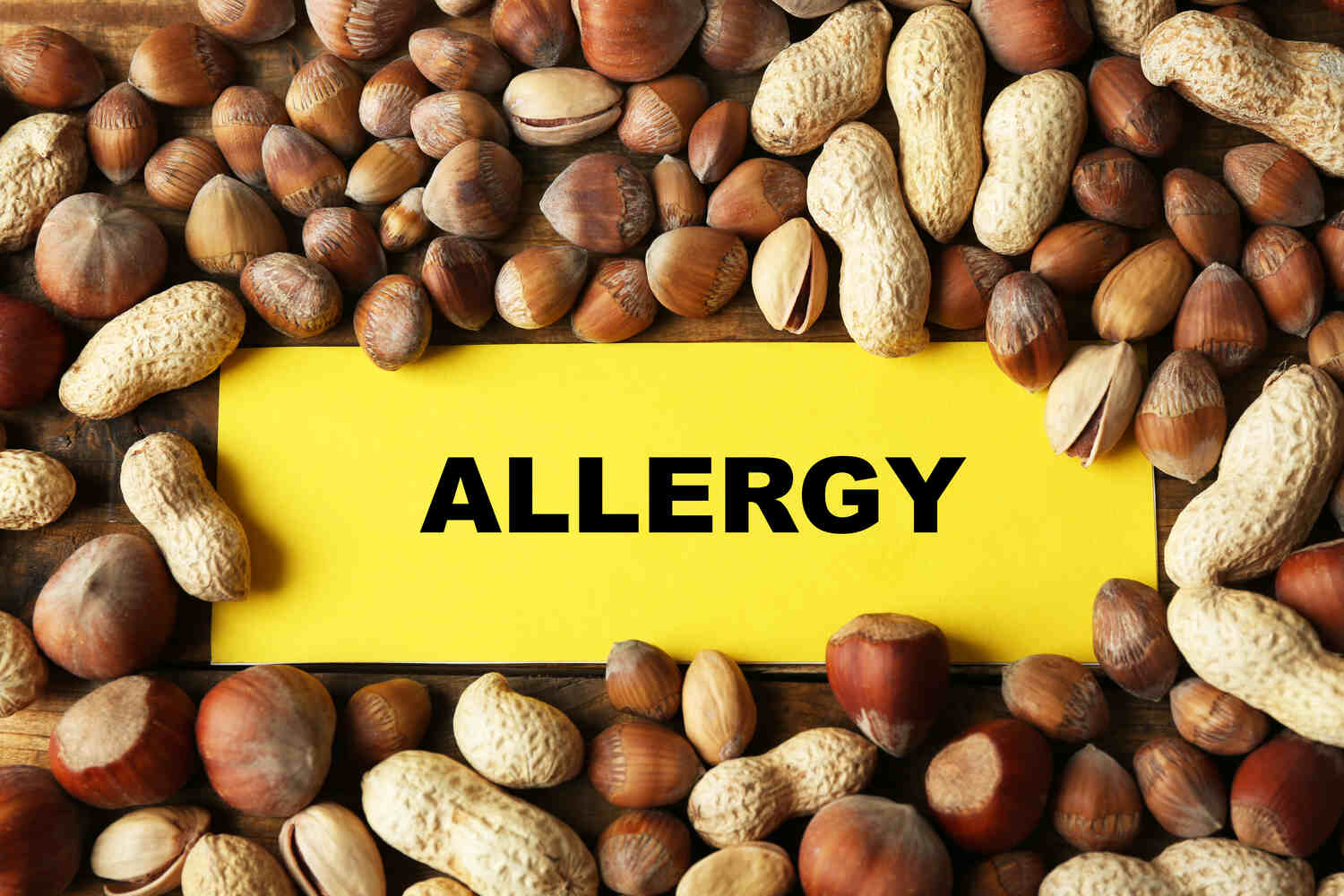
A nut allergy develops when eating a small amount of nuts triggers an allergic reaction in the body. Children can be sensitive to various nuts like walnuts, almonds, cashews, pistachios, pecans, hazelnuts, and many more. Peanut allergy is a common allergy too and develops due to the consumption of peanuts which is a legume and not a nut. Peanuts are among the most common food allergens and can cause one of the most serious hypersensitivity reactions (1).
Can Children Get Nut And Peanut Allergies?

Children under the age of 3 years are more prone to food allergies. In fact, children of any age can develop nut and peanut allergies. Children who have food allergies to milk, eggs, fish, soya, and wheat usually outgrow them as they grow older. However, peanut and other nut allergies are usually more permanent. A few studies show that the allergy is lifelong in a few children and about 15-22 % outgrow it (2).
Reason Behind Nut And Peanut Allergy in Children
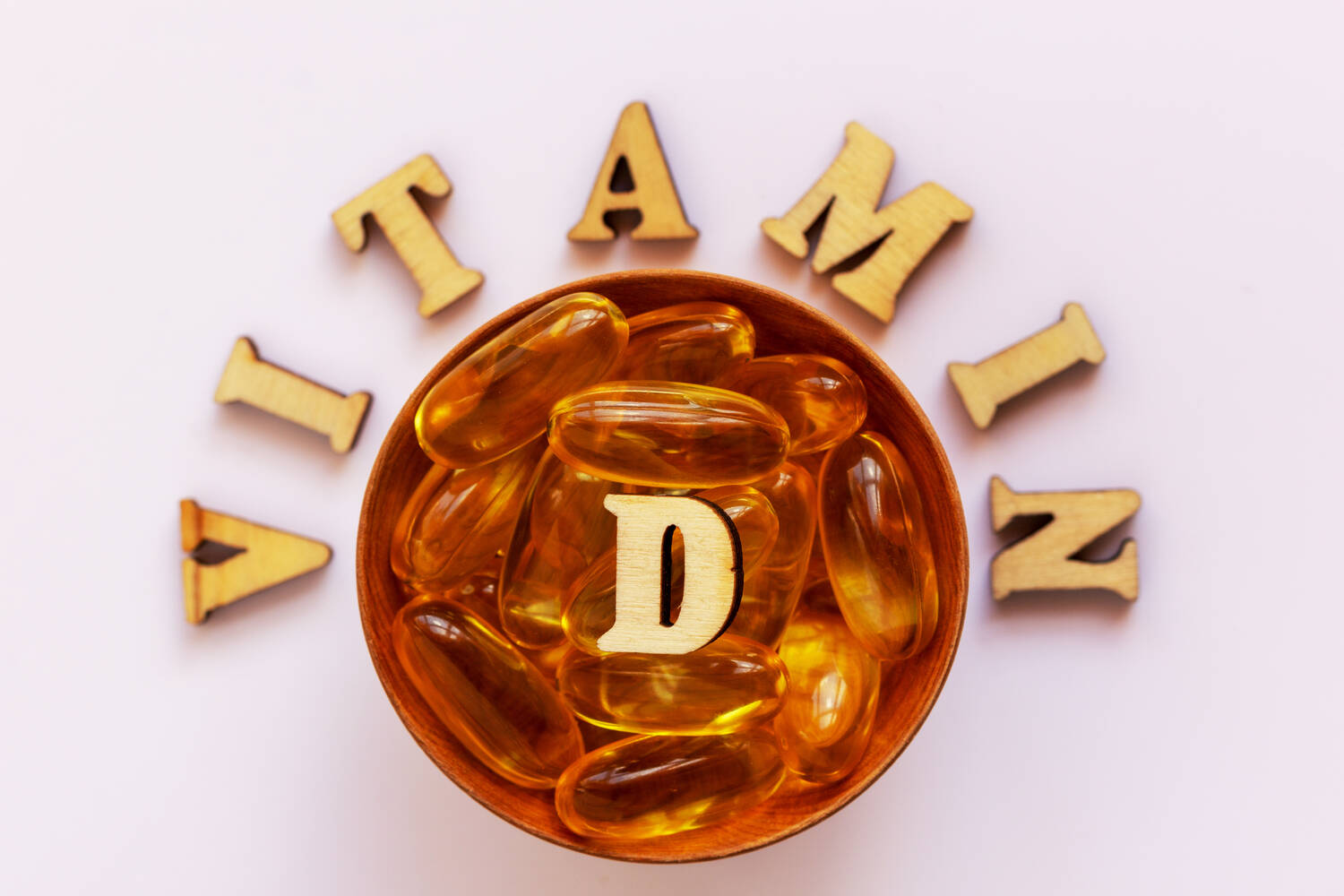
There is no single reason as to why children are allergic to nuts and peanuts. There can be a few contributory factors though, such as:
1. Family History of Allergies
If any of the blood relatives have a known nut or peanut allergy, then the chances of developing an allergy in the kids are higher.
2. Multiple Allergies
If there are other known allergies in the kid like hay fever, then the kid can have food allergies too over time.
3. Undeveloped Immunity
Very young children have an immune system that is in the process of developing. Hence, nut and peanut allergies are quite common at a younger age.
4. Vitamin D Deficiency
A few studies support that the onset of food allergies can be due to a lack of vitamin D in the first year of life (3).
Signs And Symptoms of Nut And Peanut Allergy
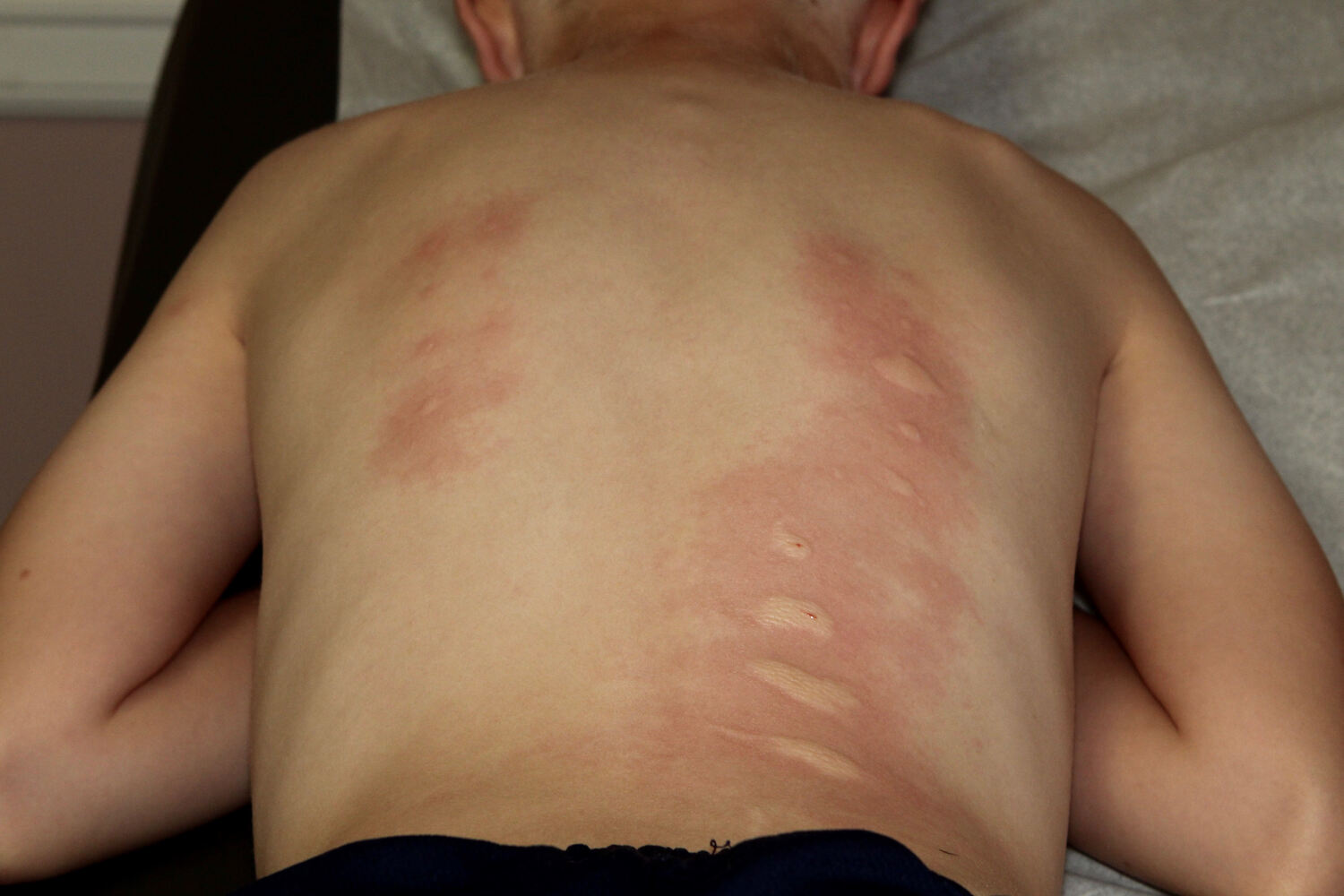
The symptoms usually range from mild to severe. Severe symptoms include that of anaphylaxis. A mild reaction to nuts and peanuts might cause the following symptoms-
- A skin rash that looks like hives or welts
- A tingling feeling in or around the mouth
- Gastric symptoms such as stomach pain, vomiting, or diarrhea
- Swelling in the face or around the mouth
- Difficulty in breathing
- Runny nose or congestion
Anaphylaxis is a more severe allergic reaction. It is a life-threatening condition, and food is the most common allergen causing it (4). The common symptoms include-
- Tightness in the throat making it difficult to breathe
- Swelling of the tongue or throat
- Difficulty in talking or talking in a hoarse voice
- Wheezing or persistent cough
- Rapid pulse rate
- Dizziness or lightheadedness
- Loss of consciousness and/or collapse
What Are The Causes of Nut And Peanut Allergies?
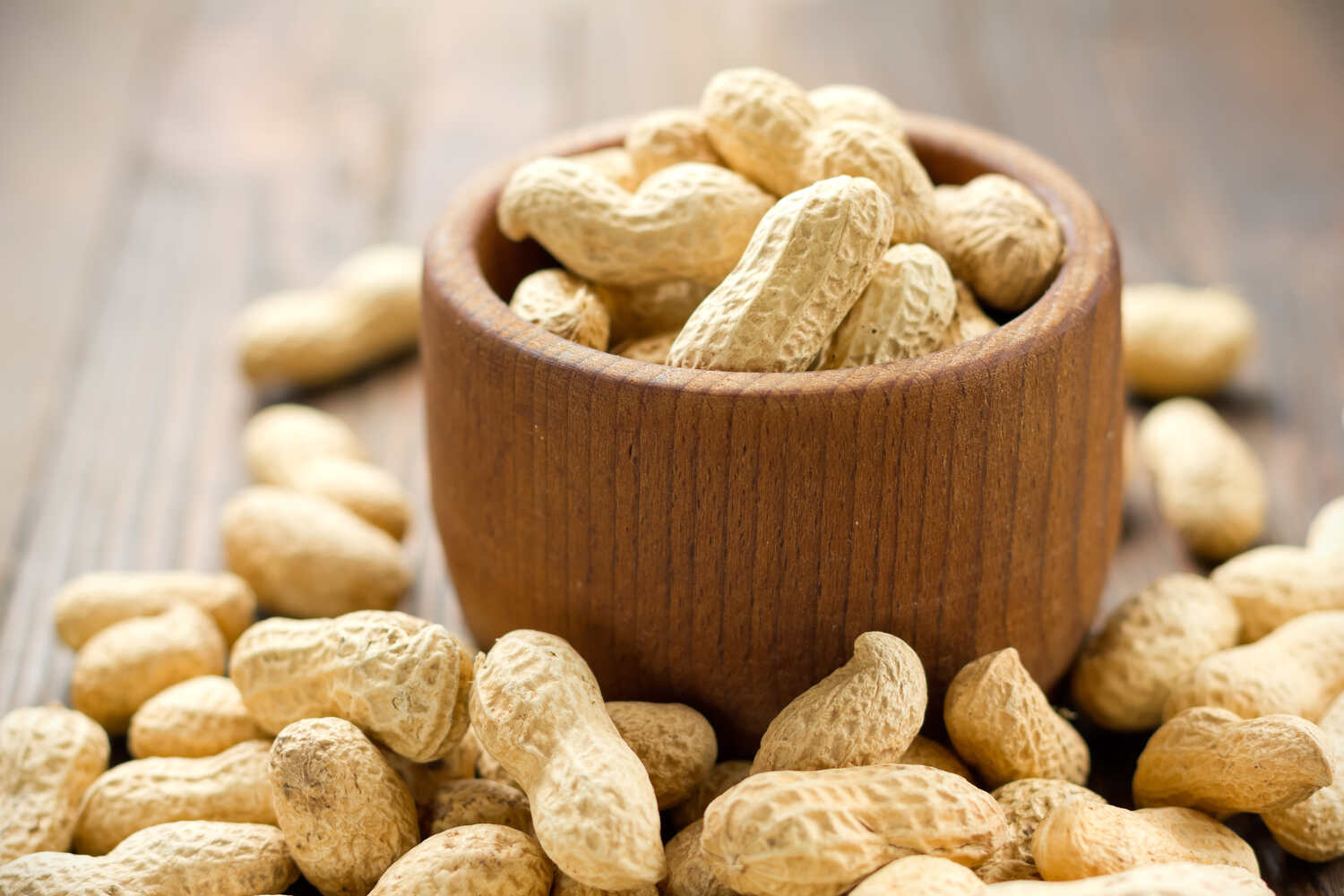
Allergies to nuts and peanuts develop when the immune system identifies the proteins in it as a foreign body. This oversensitivity to the protein can trigger an allergic reaction. The proteins in all nuts are quite similar. So, a known allergy to a certain nut might make one allergic to other nuts as well.
When the immune system perceives a substance as an allergen, a group of cells in the body called mast cells come into action. These mediators are released due to the production of immunoglobulin E in the body. Mast cells release a substance called histamine that causes the miniscule blood vessels in the tissues to leak fluid resulting in the swelling of the tissue.
Diagnosis of Nut And Peanut Allergies

While there are tests to discover allergies, in most cases a peanut or nut allergy is discovered after an allergic reaction has already occurred. Performing a skin prick test or blood test confirms the diagnosis. Allergy specialists measure the impact of peanuts on the skin by scratching some skin and placing a very small amount of liquefied peanuts on it. A raised bump or reaction confirms allergy. Blood tests include measuring the amount of immunoglobulin E antibodies in response to a particular nut.
Treatment Options For Nut And Peanut Allergies

Once any nut or peanut allergy is confirmed in your child, the doctor will prepare an action plan for the allergy. However, the best treatment is to avoid the specific nut or peanut completely as even a tiny amount in the food can cause severe reactions in the child.
If the child is at risk of developing an anaphylactic reaction or has had it in the past, then it is mandatory to have an adrenaline auto-injector (or EpiPen) with them. Mild symptoms can be temporarily relieved by the use of over-the-counter antihistamines.
What to do in Case of Severe Allergic Reactions in Children?

If your child develops severe anaphylaxis then you need to be very quick as every minute counts in this situation.
- Administer the epinephrine auto-injector right away without wasting a minute. If you are alone, then give the medicine before calling for an ambulance. If you have a person accompanying you then let them call the ambulance while you inject the medication
- Even if the symptoms improve after the injection, take them to the emergency room. It is necessary to monitor and observe the child for a few hours after the attack
How to Eat Out With Nut or Peanut Allergy?

You need to be extra cautious while dining out with your kid having a nut or peanut allergy. You should inform the restaurant about the known food allergens beforehand. As most of the food like salad dressings and Asian food contain nuts it is best to take extra care and know the ingredients in the preparation. It is best to let the child eat in a separate plate to avoid the risk of cross-contamination.
Also, make sure that you don’t visit the restaurant during peak hours so that the staff caters to your instructions well. Always carry your child’s epinephrine pen when going out to eat.
Foods to Avoid if Your Child Has a Nut And Peanut Allergy
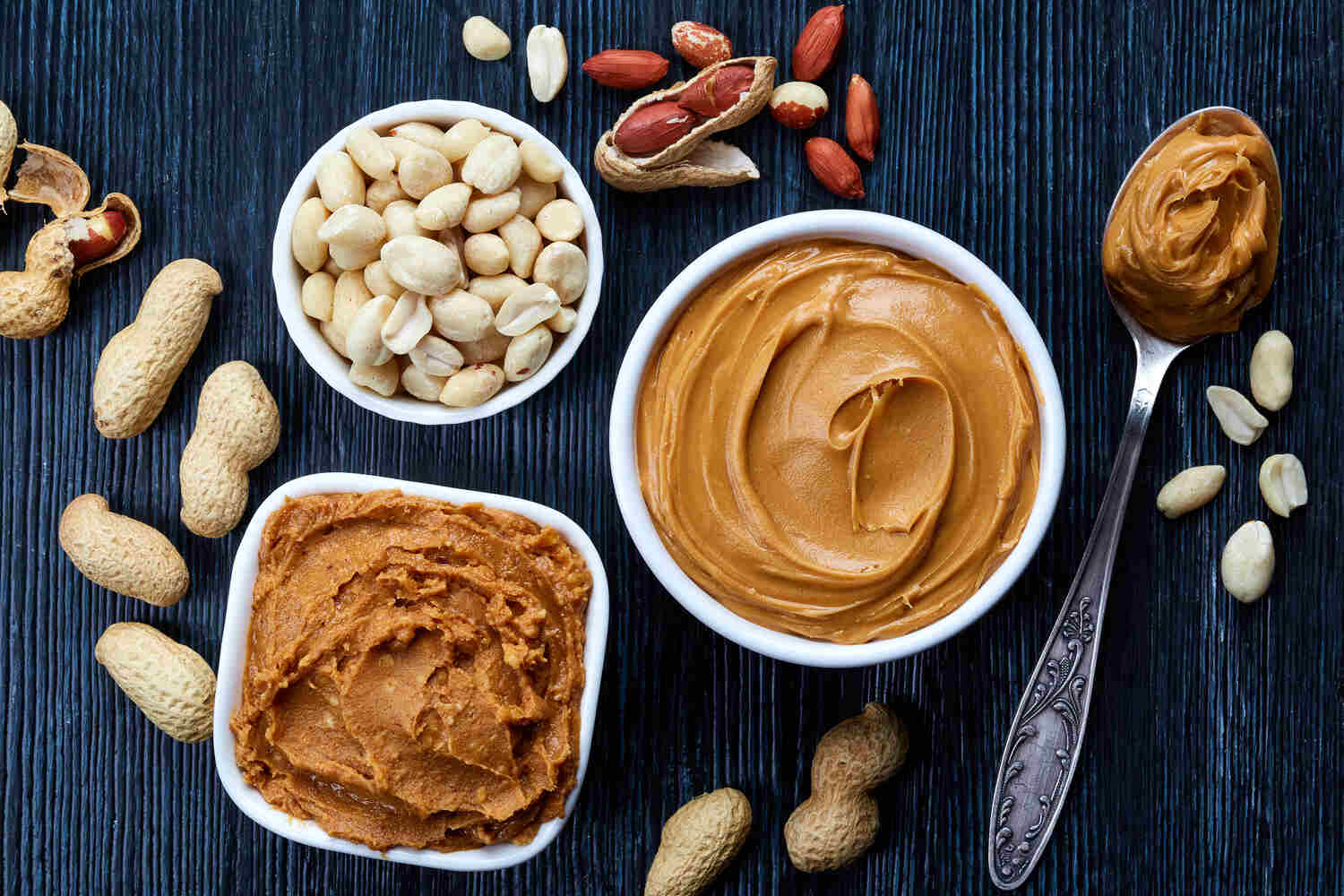
When the proteins in one allergen are similar to the protein in another, then cross-reactivity may occur as the body’s immune system sees them as the same. Hence, it’s better to avoid such foods. A few of them are-
- Ground or mixed nuts
- Bakery items such as certain breads, cookies, and pastries
- Cereals and granola
- Certain cooking oils like nut oils
- Ice creams, chocolates, energy bars
- Peanut flour
- Many Indian, Oriental, and Mexican dishes
- Nut butter like almond, peanut, etc.
As a parent, it’s very important to understand your child’s food allergy. Avoiding all such food that can have even a pinch of the allergen, can be life-saving for your kid. Prevention is the best remedy in case of allergies, as there is no permanent cure available. Discuss with your child’s doctor about safe practices that can be followed at home and while outside.
FAQ’s
1. What is a Natural Remedy For Peanut Allergy?
The best way to avoid food allergy is by avoiding that food completely. Some natural remedies can be a bit useful like including probiotics in the diet that help in replacing the gut bacteria. Including lemon, ginger, and green tea in the diet can help in boosting the immune system.
2. Can Peanut Allergy be Cured?
As such there is no cure for peanut allergy, so the best thing to do is to avoid it completely. Though many children outgrow their allergy with time.
3. If Someone is Allergic to Peanuts, Then Will They be Allergic to Other Nuts as Well?
People with an allergy to peanuts are at a high risk of being allergic to some other nuts as well. This happens due to cross-reactivity to the proteins in the allergen in different nuts.
4. Why Are So Many Kids Allergic to Peanuts?
The number of kids allergic to peanuts has significantly increased over the decades. Peanuts is one of the most allergenic foods because it contains several proteins, not found in other foods. Another reason is lack of vitamin D due to a decrease in outdoor activities by children. Vitamin D helps in making the immune system more tolerant towards such allergens.
5. Do Childhood Nut And Peanut Allergies Go Away?
Yes, many times kids outgrow allergies. According to a few studies, about 20% of the kids outgrow their food allergies. As they get older, they stop having allergic reactions.
References
- Peanut allergenicity – [https://www.sciencedirect.com/science/article/abs/pii/S1081120610617279]
- Peanut Allergy: An Overview – [https://aacijournal.biomedcentral.com/articles/10.1186/1710-1492-4-4-139]
- Vitamin D insufficiency is associated with challenge-proven food allergy in infants – [https://www.sciencedirect.com/science/article/pii/S0091674913001541]
- Food anaphylaxis – [https://onlinelibrary.wiley.com/doi/abs/10.1111/j.1365-2222.2007.02682.x]

Dr Nihan Khan,MBBS,MD (Pathology)
Responses (0)
Want curated content sharply tailored for your exact stage of parenting?
Related articles

Object-to-Picture Matching Skills in Toddlers – Top Benefits and How to Start

Toddler Milestones – What Can You Expect at 31 Months?

Noodles For Toddlers – Is it Safe?

Milk Alternatives For Your Toddler – When to Consider and Top Substitutes

Top 10 Easy Sensory Activities for Toddlers

Bad Breath in Toddlers – Causes, Home Remedies and Tips to Deal With
Sponsored content
Discover great local businesses around you for your kids.
Get regular updates, great recommendations and other right stuff at the right time.





